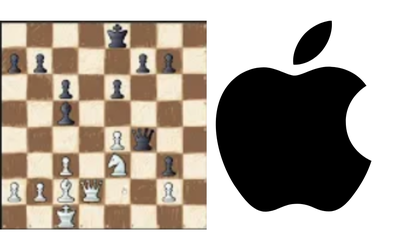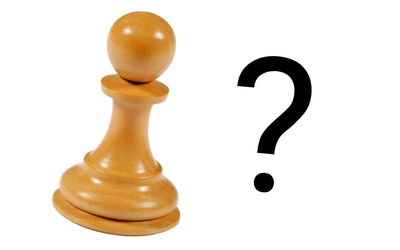
How to improve at Tactics ?
Explaining chess tactics with the help of Julius CaesarChess is a game of strategy and tactics, where every move counts and can make or break a player's chances of winning. While strategy involves long-term planning and understanding the strengths and weaknesses of both players, tactics focus on short-term moves and combinations that can lead to immediate gains on the board. Developing tactical skills is essential for any chess player who wants to improve their game and win more matches.
Here are some effective strategies to improve at tactics in chess:
- Practice, Practice, Practice One of the most important things you can do to improve your tactical skills is to practice regularly. Solving chess puzzles, playing through games played by grandmasters, and analyzing your own games are all excellent ways to practice. The more you practice, the more familiar you will become with common tactics and the easier it will be to spot them in your own games.
- Study Basic Tactics Before you can begin to recognize more advanced tactics, you need to master the basic ones. Studying basic tactics such as forks, pins, skewers, and discovered attacks will give you a solid foundation on which to build your tactical skills. There are many resources available online, including books, videos, and websites, that can help you learn these basic tactics.
- Analyze Your Games Analyzing your own games is an excellent way to identify tactical opportunities you may have missed. When analyzing your games, pay close attention to critical positions and try to identify where you could have played a better move. Use a chess engine to help you identify tactical opportunities and evaluate the strength of your moves.
- Play Blitz Chess Blitz chess is a fast-paced form of chess where players have a limited amount of time to make their moves. Playing blitz chess is an excellent way to improve your tactical skills because it forces you to think quickly and make decisions under pressure. The more you play blitz chess, the more comfortable you will become with making tactical moves quickly and accurately.
- Learn from Your Mistakes Finally, it is essential to learn from your mistakes. Whenever you miss a tactical opportunity or make a mistake in a game, take the time to analyze what went wrong and how you could have played better. By learning from your mistakes, you will be better equipped to recognize similar opportunities in future games.
In conclusion, improving your tactical skills in chess requires regular practice, studying basic tactics, analyzing your games, playing blitz chess, and learning from your mistakes. By implementing these strategies, you can become a stronger chess player and win more matches. Remember that developing your tactical skills is an ongoing process, and the more you practice, the better you will become.
Let's take a real example ; Julius Caesar
Julius Caesar is one of the most renowned military leaders in history, having conquered vast territories during his campaigns. His successful strategies at war have been studied and emulated by military leaders for centuries, and his tactics continue to influence military thinking today.
Caesar was a master of strategy, and his success on the battlefield was due in large part to his ability to adapt to changing circumstances and to innovate new tactics. One of his most notable strengths was his ability to inspire loyalty in his troops, who respected him for his courage, intelligence, and charisma. This allowed him to build a highly effective army that was able to achieve remarkable victories against much larger forces.
Caesar was also known for his careful planning and attention to detail. He would spend months studying maps, scouting enemy positions, and analyzing troop movements in order to gain an advantage on the battlefield. He was a master of deception, using feints and diversions to confuse and weaken enemy forces. This allowed him to achieve strategic victories even when he was outnumbered.
One of Caesar's most famous tactics was the double envelopment, which he used to great effect in the Battle of Alesia. This involved surrounding the enemy on both sides, cutting off their supply lines, and then attacking them from all sides. This tactic was highly effective because it allowed Caesar to cut off the enemy's escape route and to attack them from multiple directions, making it difficult for them to coordinate their defenses.
Another tactic that Caesar used to great effect was the use of cavalry. He recognized the importance of fast-moving, highly mobile units that could strike quickly and then retreat before the enemy could respond. He also realized that cavalry could be used to disrupt enemy formations and to sow confusion in their ranks. This allowed him to gain a tactical advantage by exploiting weaknesses in the enemy's defenses.
Finally, Caesar was a master of siege warfare. He understood the importance of controlling key positions and of cutting off the enemy's supply lines. He was also skilled at building fortifications and using artillery to weaken enemy defenses. This allowed him to win many of his most important battles, including the Battle of Alesia, which he won by starving the enemy


